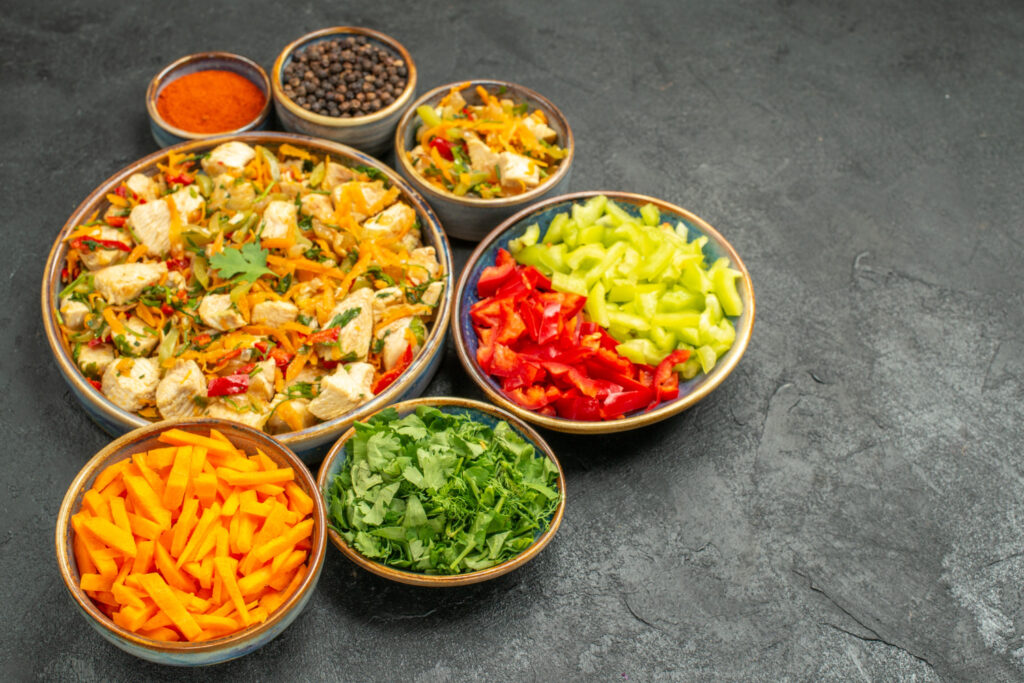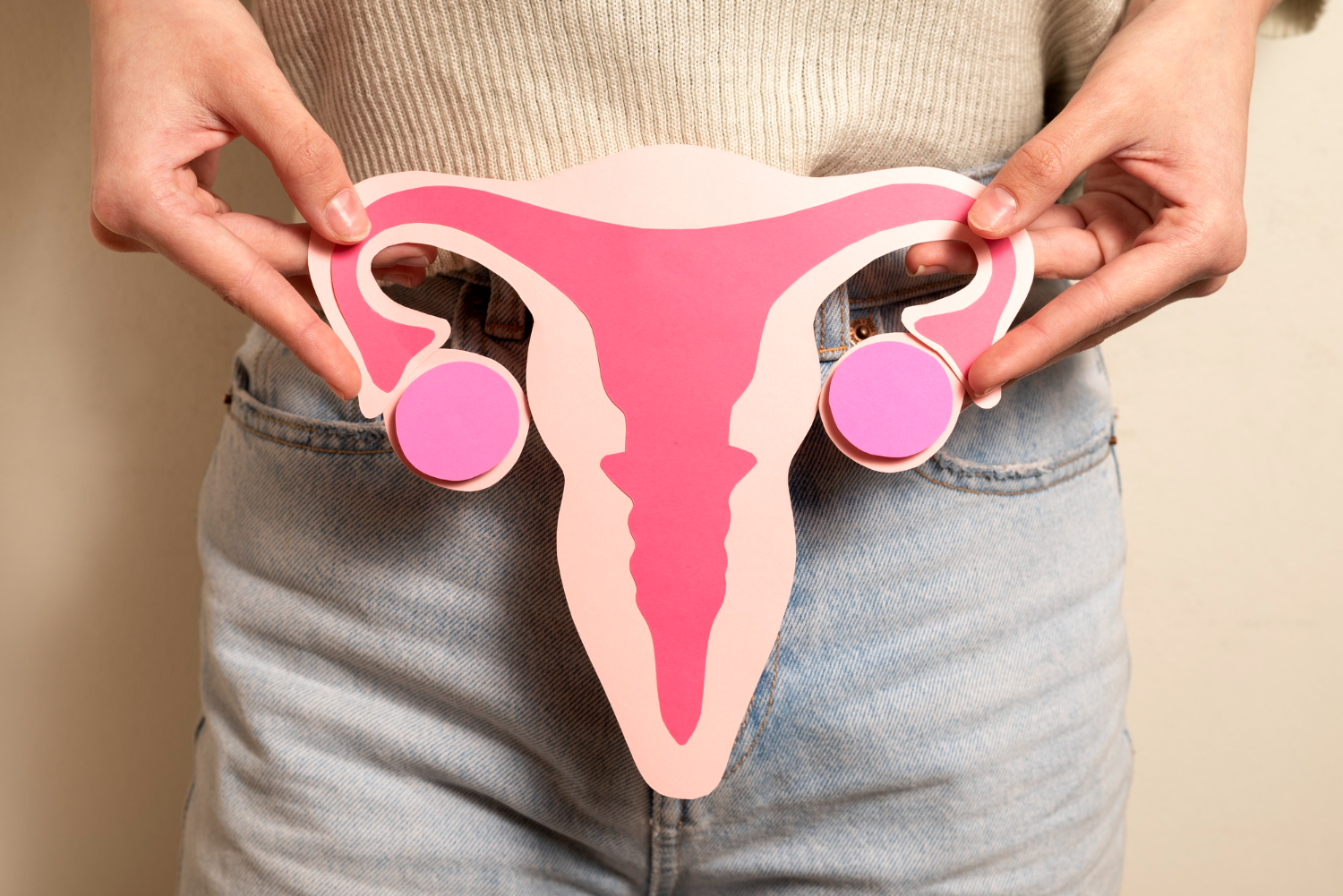The Plate and Parenthood Connection
In India, the pursuit of a family is often deeply ingrained in our cultural fabric. While medical advancements have brought incredible hope to those facing fertility challenges, there’s a growing awareness about the profound impact of our daily choices on our reproductive health. Among these choices, what we eat stands out as a fundamental, yet often overlooked, factor. The age-old wisdom of “you are what you eat” holds significant truth when it comes to preparing your body for conception.
Many couples embarking on the journey to parenthood find themselves asking: “Can my diet make a difference?” The answer is a resounding yes. While a fertility-boosting diet isn’t a magic bullet that guarantees pregnancy, it plays a powerful supportive role. By providing your body with the proper nutrients, you can optimise hormone balance, enhance egg and sperm quality, reduce inflammation, and create a more hospitable environment for a healthy pregnancy.
This isn’t about restrictive diets or complicated meal plans. Instead, it’s about making conscious, nourishing choices that empower your reproductive system. Our traditional Indian kitchens are, in fact, treasure troves of ingredients rich in fertility-supporting properties, seamlessly blending ancient wisdom with modern nutritional science.
Okay, here is the second section of your blog post, “Nourishing Your Path to Parenthood: Essential Foods for Fertility in India,” focusing on essential nutrients and key food groups, aiming for approximately 600 words:
Building Your Fertility Plate: Essential Nutrients and Key Food Groups
When it comes to boosting fertility through diet, the focus shifts from just “eating healthy” to strategically incorporating specific nutrients that play direct roles in reproductive function for both men and women. Think of your plate as a foundation for optimal egg and sperm health, hormonal balance, and a thriving reproductive system.
Here are the essential nutrients and the food groups to prioritise in your Indian diet:
A. Antioxidants: Your Body’s Protective Shield. Antioxidants are crucial compounds that combat oxidative stress, which can damage cells, including those in the reproductive system, such as eggs and sperm.
- What they do: Protect reproductive cells from damage, improve egg quality, and enhance sperm motility and morphology.
- Key Antioxidants: Vitamin C, Vitamin E, Selenium, Zinc, and various phytochemicals.
- Indian Foods Rich in Antioxidants:Berries: Blueberries and raspberries (often available frozen) are packed with antioxidants.
- Citrus Fruits: Amla (Indian gooseberry) is a powerhouse of Vitamin C. Oranges, sweet limes, and lemons are also excellent sources.
- Green Leafy Vegetables: Spinach (palak), kale, mustard greens (sarson), and fenugreek leaves (methi) are bursting with antioxidants, folate, and iron.
- Tomatoes: Rich in lycopene, a powerful antioxidant, particularly beneficial for male fertility.
- Walnuts: Offer Vitamin E and a range of antioxidants.
- Pumpkin Seeds: High in Zinc and various antioxidants.
B. Folate (Vitamin B9): Essential for Cellular Blueprint Folate, the natural form of folic acid, is vital for DNA synthesis and cell division. Its importance extends beyond preventing congenital disabilities, as it directly impacts early embryo development.
- What it does: Supports healthy cell division, which is crucial for egg and sperm formation and early fetal development.
- Indian Foods Rich in Folate: Lentils & Legumes: All varieties of dal (moong, masoor, arhar), chickpeas (chana), kidney beans (rajma), and black-eyed peas are excellent sources.
- Leafy Greens: Spinach (palak), fenugreek (methi), and other green, leafy vegetables are rich in folate.
- Asparagus: While not a traditional Indian staple, it’s increasingly available and a great source.
- Okra (Bhindi): A good source of folate.
C. Omega-3 Fatty Acids: The Hormone Balancers. These “good fats” are crucial for reducing inflammation, regulating hormone levels, and enhancing the quality of both eggs and sperm.
- What they do: Improve blood flow to reproductive organs, support hormone production, enhance egg membrane health, and boost sperm motility and structure.
- Indian Foods Rich in Omega-3s: Fatty Fish: Salmon, mackerel, and sardines (for non-vegetarians) are excellent sources.
- Flaxseeds (Alsi): Grind them fresh and add to smoothies, curd, or roti dough.
- Chia Seeds: These can be added to overnight oats, puddings, or drinks.
- Walnuts also provide a good amount of omega-3s.
- Ghee: While primarily saturated fat, pure ghee from grass-fed cows contains some beneficial fatty acids and fat-soluble vitamins. Consume in moderation.
D. Lean Proteins: The Building Blocks of Life. Proteins are essential for the production of hormones, the development of healthy eggs and sperm, and the growth of new cells.
- What they do: Provide amino acids necessary for reproductive processes.
- Indian Foods Rich in Lean Proteins: Lentils and Legumes – Dal, sprouts, and chana are excellent plant-based protein sources.
- Paneer: A versatile source of dairy protein.
- Tofu & Soya: Plant-based protein alternatives.
- Eggs: A complete protein source, rich in vitamins and minerals.
- Lean Chicken/Fish: (for non-vegetarians) Provide high-quality animal protein.
E. Complex Carbohydrates & Fibre: Steady Energy for Hormones. Unlike refined carbohydrates, complex carbs provide sustained energy, help stabilise blood sugar levels, and support hormonal balance, which is crucial for ovulation. Fibre promotes gut health and aids in estrogen metabolism.
- What they do: Prevent insulin spikes (beneficial for conditions like PCOS), provide sustained energy, and support gut flora.
- Indian Foods Rich in Complex Carbs & Fibre: Whole Grains: Bajra, jowar, ragi, brown rice, whole wheat (chapati), and oats.
- Quinoa: A complete protein and a good complex carb source.
- Sweet Potatoes: Nutrient-dense complex carbohydrates.
F. Healthy Fats: Hormonal Architects Not all fats are bad. Healthy fats are vital for hormone production and nutrient absorption.
- What they do: Support the synthesis of sex hormones like estrogen and progesterone.
- Indian Foods Rich in Healthy Fats:Avocados: Though not traditionally Indian, they are increasingly available and a great source of monounsaturated fats.
- Ghee: In moderation, it provides healthy saturated fats and fat-soluble vitamins.
- Nuts: Almonds, walnuts, cashews.
- Seeds: Sunflower seeds, pumpkin seeds, chia seeds, flaxseeds.
G. Specific Vitamins & Minerals: The Micro-Managers Beyond the major food groups, certain micronutrients play incredibly specific and vital roles:
- Vitamin D: Often deficient in India, it is crucial for hormonal balance, ovarian function, and overall reproductive health. Sunlight exposure and fortified foods are key.
- Iron: Essential for preventing anovulation (lack of ovulation) and maintaining healthy red blood cells to prevent anaemia, especially important during pregnancy.
- Zinc: Vital for male fertility (sperm production, motility, and testosterone levels) and also crucial for female fertility, supporting egg development and ovulation.
- B Vitamins (especially B6, B12): Support hormone regulation, cell formation, and overall energy metabolism.
By focusing on these nutrient-rich categories, you can start building a fertility-boosting plate that is both delicious and effective.
Okay, here is the third section of your blog post, focusing on Indian superfoods for fertility, aiming for approximately 400 words:
Indian Superfoods for Fertility: Local Wisdom Meets Modern Science
Our Indian culinary heritage is not just about taste; it’s a treasure trove of ingredients with deep-rooted health benefits, many of which align perfectly with modern fertility science. By incorporating these traditional “superfoods” into your daily diet, you can leverage local wisdom to boost your reproductive health.
- Amla (Indian Gooseberry): The Vitamin C Powerhouse This sour berry is a potent source of Vitamin C, a powerful antioxidant that protects both egg and sperm cells from oxidative damage. It also supports overall immunity, which is crucial for a healthy body to be ready for conception.
- How to include: Fresh amla juice, pickled amla, or amla candy (in moderation).
- Ashwagandha (Withania somnifera): The Stress Buster Known in Ayurveda as a powerful adaptogen, Ashwagandha can help the body manage stress, a known factor impacting fertility. Research suggests that it may also improve male fertility parameters, such as sperm count and motility. Always consult your doctor before taking any herbal supplements, especially when trying to conceive.
- How to include: As a powder mixed in warm milk or as a supplement under medical guidance.
- Turmeric (Haldi): The Golden Anti-Inflammatory This ubiquitous spice contains curcumin, a compound with potent anti-inflammatory and antioxidant properties. Chronic inflammation can hurt reproductive organs.
- How to include: Daily in curries, dals, or a calming “haldi doodh” (turmeric milk).
- Ghee (Clarified Butter): A Source of Healthy Fats While often viewed with caution, pure, high-quality ghee, especially from grass-fed cows, is a source of healthy saturated fats and fat-soluble vitamins (A, D, E, K) vital for hormone production. Consumed in moderation, it can be a beneficial part of a fertility diet.
- How to include: In cooking, drizzled over chapatis or dals.
- Dates (Khajoor): Nature’s Sweet Energy Boost Dates are packed with natural sugars, essential minerals like iron, magnesium, and potassium, and a good amount of fibre. They provide sustained energy and micronutrients supportive of overall health.
- How to include: As a snack, blended in smoothies, or energy bars.
- Pumpkin Seeds (Kaddu ke Beej): Zinc and Omega-3 Rich These small seeds are a fantastic source of Zinc, crucial for sperm production and quality in men, and vital for female hormone regulation. They also provide beneficial Omega-3 fatty acids.
- How to include: Roasted as a snack, sprinkled on salads, or added to smoothies.
- Leafy Greens (Methi, Palak, Sarson): Folate & Iron Powerhouses Traditional Indian greens like fenugreek (methi), spinach (palak), and mustard greens (sarson) are packed with folate (Vitamin B9), essential for preventing neural tube defects and supporting healthy cell division. They are also excellent sources of iron.
- How to include: Cooked in curries, dals, parathas, or blended into soups.
- Lentils (Dal): Protein and Micronutrient Abundance Dals are the cornerstone of the Indian diet, providing excellent plant-based protein, iron, and folate – all critical for fertility.
- How to include: Daily in various dal preparations, sprouts, and salads.
- Saffron (Kesar): Antioxidant and Mood Enhancer Known for its distinct flavour and colour, saffron is also an antioxidant and is traditionally believed to enhance mood and libido.
- How to include: In milk, sweet dishes, or small quantities in rice preparations.
By consciously incorporating these wonderful ingredients, often already staples in Indian households, you can effortlessly transform your everyday meals into a powerful fertility-boosting diet, marrying ancient wisdom with your modern goals.
Foods to Limit or Avoid: What to Ditch for Better Fertility
While focusing on what to eat is essential, equally important is understanding what to limit or, ideally, avoid when you’re trying to conceive. Certain foods and substances can disrupt hormonal balance, increase inflammation, or directly impact egg and sperm quality. Making these conscious eliminations can significantly enhance your fertility-boosting efforts.
- Processed Foods & Refined Sugars: These are the biggest culprits in modern diets. Foods high in refined sugars (found in most sweets, sodas, and packaged snacks) and processed ingredients (such as ready-to-eat meals and instant noodles) can lead to blood sugar spikes, contribute to insulin resistance (especially problematic for women with polycystic ovary syndrome or PCOS), and fuel systemic inflammation. Opt for whole, natural foods instead.
- Trans Fats & Unhealthy Saturated Fats: Often found in deep-fried snacks (such as samosas and pakoras), baked goods, margarine, and many packaged foods, trans fats and excessive unhealthy saturated fats can negatively impact blood flow to reproductive organs and increase inflammation. Choose healthier cooking oils, such as olive oil, rice bran oil, or moderate amounts of ghee.
- Excessive Caffeine: While moderate caffeine intake (e.g., one cup of coffee or two cups of tea daily) might be acceptable for some, high consumption has been linked to increased time to conception and, in some studies, a higher risk of miscarriage. Consider switching to decaffeinated options or herbal teas for a healthier alternative.
- Alcohol: For both partners, alcohol consumption should be limited and, ideally, avoided entirely when trying to conceive. In men, it can negatively impact sperm quality, count, and motility. In women, it can disrupt hormonal balance and ovulation, and any amount is considered unsafe during pregnancy.
- High-Mercury Fish: While fish rich in Omega-3s are beneficial, certain large predatory fish like King Mackerel, Swordfish, and some types of Tuna (especially albacore) can contain high levels of mercury. High mercury levels can be detrimental to fetal development. Opt for low-mercury choices like salmon, sardines, and anchovies.
- Excessive Soy (for men): Some research suggests that a very high intake of soy products by men might have phytoestrogenic effects that could potentially impact male hormone levels and sperm quality. While moderate consumption is generally acceptable, it’s wise not to overdo it.
- Unpasteurised Dairy & Raw Foods: To minimise the risk of foodborne illnesses, which can be particularly harmful during conception and early pregnancy, it’s advisable to avoid unpasteurised dairy products (like certain cheeses or raw milk) and ensure all meat, poultry, and eggs are thoroughly cooked.
Making these mindful changes to your diet can create a much healthier internal environment, paving a smoother path for conception.
Beyond the Plate: Lifestyle Factors and Professional Guidance
While nourishing your body with a fertility-friendly diet is a decisive step, it’s essential to understand that diet is just one piece of the larger fertility puzzle. A genuinely holistic approach to improving your chances of conception involves addressing several other key lifestyle factors that work in synergy with your dietary choices.
- Hydration is Key: Often overlooked, adequate water intake is fundamental for overall health, including reproductive function. Water aids in nutrient transport, detoxification, and the maintenance of healthy cervical mucus, which is crucial for sperm transport.
- Stress Management: In today’s fast-paced world, especially in urban India, stress is a significant factor impacting fertility. Chronic stress can disrupt hormonal balance. Incorporate stress-reducing practices, such as yoga, meditation, mindfulness, or spending time in nature, into your daily routine.
- Healthy Weight Management: Being significantly underweight or overweight can negatively impact fertility by disrupting hormonal balance and ovulation. Aim for a healthy BMI through a balanced diet and exercise.
- Regular, Moderate Exercise: Engaging in consistent physical activity can enhance blood flow, alleviate stress, and help maintain a healthy weight. However, extreme or excessive exercise can sometimes be detrimental, so moderation is key.
- Adequate Sleep: Prioritise 7-9 hours of quality sleep per night. Sleep deprivation can affect hormone regulation, including those crucial for reproduction.
Most importantly, while lifestyle changes can significantly optimise your body for conception, they cannot overcome underlying medical fertility issues. If you’ve been actively trying to conceive without success, or if you have known conditions like PCOS, endometriosis, or male factor issues, dietary and lifestyle adjustments should always complement, not replace medical treatment.
Consulting a fertility specialist is paramount. They can provide a personalised assessment, identify any specific challenges, and guide you towards the most effective path, whether it involves further diagnostics, medication, or assisted reproductive technologies. Your diet acts as a strong foundation, but professional medical advice ensures all aspects of your fertility journey are addressed.
Nurturing Your Body for New Beginnings
Your diet is a powerful tool that can significantly influence your reproductive health and optimise your chances of conception. By consciously choosing foods for fertility, rooted in both scientific understanding and the rich traditions of Indian cuisine, you are actively nurturing your body to create an optimal environment for a new beginning.
Remember, every small, healthy choice you make on your plate contributes to your overall well-being and fertility. While diet is a cornerstone, it’s part of a larger, holistic approach that includes lifestyle factors and, most importantly, professional medical guidance. To get personalised dietary advice or a comprehensive fertility assessment tailored to your unique needs, connect with the experts at Janitva IVF. Your journey to a healthy pregnancy starts with informed choices and dedicated care.





